4 Tips to Select the Perfect Dutch Woven Wire Mesh
Sep. 23, 2024
When it comes to industrial applications, selecting the right materials can significantly affect efficiency, durability, and overall performance. One such material, Dutch woven wire mesh, is widely used across various industries due to its strength and versatility. Whether you’re in the food processing, pharmaceutical, or petrochemical industry, choosing the perfect Dutch woven wire mesh requires a keen understanding of your specific needs. Here are four expert tips to guide you in your selection process.
1. Understand the Material Properties
The first step in selecting your Dutch woven wire mesh is to fully comprehend its material properties. Dutch woven wire mesh is typically made from stainless steel, which offers remarkable strength and corrosion resistance. However, not all stainless steel is created equal. For instance, the grades 304 and 316 are among the most common. Grade 304 is suitable for general applications, but if you need something more resistant to chlorides and harsh environments, turning to 316 stainless steel is a wiser choice.
Moreover, consider the wire diameter and opening size. A thicker wire will generally provide more strength, while finer mesh can offer better filtration. If you’re in an industry that requires hygienic conditions, such as food processing, incredibly subtle mesh specifications may be needed to ensure safety and efficiency. Examining the properties of the wire mesh concerning tensile strength, resistance to abrasion, and even the environment where it will be used is vital.
2. Evaluate Your Application Requirements
Every application has unique requirements, so it’s essential to evaluate them thoroughly before making your selection. For example, if you're using the mesh for filtration in the food industry, you may prioritize specific sizes to ensure proper filtration of particles while maintaining flow rates. In contrast, if you’re using the mesh as a barrier in construction or architecture, the aesthetic aspect, alongside the durability, may take precedence.
Additionally, think about how the mesh will be used. Will it be in a high-flow environment, such as oil and gas applications, or will it serve more static purposes, like screening or separation? Understanding your application can also help you gauge the level of maintenance needed, as some types of woven wire mesh require more upkeep than others, especially in harsh conditions.
3. Consider Customization Options
In many cases, a one-size-fits-all approach wouldn’t suffice. If your application has specific requirements or unique dimensions, it’s worth looking into customization options. Many reliable manufacturers offer bespoke solutions that cater to the exact needs of their clients. This could be in the form of custom wire diameters, mesh openings, or even surface treatments.
Additional reading:How Does Stainless Steel Wire Rope Perform?
The Advantages of Installing Soundproofing for Your HVAC System
How Does Hollow Core Concrete Insulation Work?
How to Choose a Galvanised Steel Star Pickets Exporter?
Exploring 358 Welded Mesh: Benefits and Applications
Shellfish Handling Tips
358 Mesh Fencing - The Highest Level of Security Welded ...
Customization also allows you to match the Dutch woven wire mesh to existing setups, ensuring seamless integration into your project. Make sure to communicate your requirements clearly and perhaps even consult with a materials expert who can provide insight into how the specific mesh design will affect your overall productivity. Working with experienced vendors can also provide additional proof of trustworthiness, as their expertise can alleviate any concerns you may have about quality and suitability.
4. Assess Supplier Credibility
The quality of your Dutch woven wire mesh will ultimately depend not just on the specifications but also on the supplier from whom you purchase it. Always do your due diligence when choosing a manufacturer. Look for suppliers that have a longstanding reputation in the industry, positive customer reviews, and a solid portfolio of successful projects. Trustworthy suppliers should also be transparent about their manufacturing processes, the quality checks they undergo, and their warranties.
In addition, consider engaging in conversations with past clients or seeking third-party testimonials. Often, word-of-mouth recommendations can lead you to reliable suppliers. Establishing a professional relationship can provide you not just with high-quality mesh but also with ongoing support, advice, and adjustments as your needs evolve.
By following these four tips—understanding material properties, evaluating your application requirements, considering customization options, and assessing supplier credibility—you can significantly enhance your odds of selecting the perfect Dutch woven wire mesh for your specific needs. Investing time in this thoughtful selection process will lead to long-term benefits, ensuring functionality and efficiency, ultimately translating into a robust return on investment. So go ahead, do your homework, and allow your project to thrive with the right woven wire mesh!
For more information, please visit Dutch Woven Wire Mesh, Plain woven wire screen for soil sifting, Quarry screen mesh for grading.
Additional reading:Which type of barbed wire is best?
Top Benefits of Double Wire Fence in 2024
4 Advice to Choose a wire mesh fencing company
Shale Shakers In Oilfield Guide
5 Common Uses for Barbed Iron Wire: Your Ultimate Guide
Ultimate Guide to Double Wire Fence: Installation Tips & Benefits
Top 5 Slope Protection Nets To Prevent Erosion - Expert Tips
33
0
0
Related Articles
-
101
0
0
-
Ultimate Guide: Why Barbed Wire Fencing is Essential for Security & Protection
Ultimate Guide: Why Barbed Wire Fencing is Essential for Security & Protection.
77
0
0
-
103
0
0
-
86
0
0
-
78
0
0
-
91
0
0
-
77
0
0
-
80
0
0


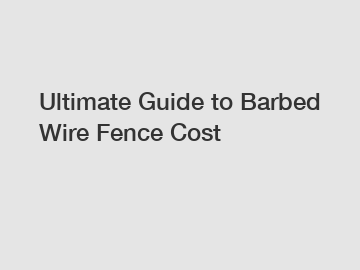
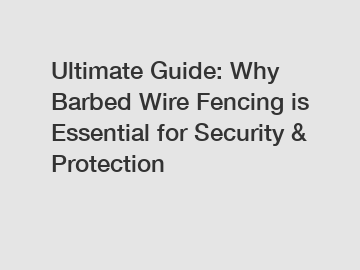
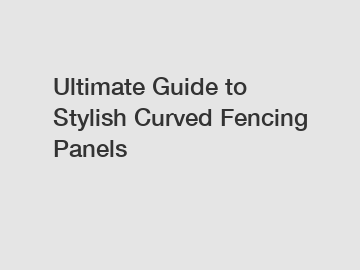
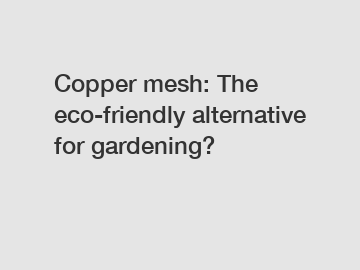

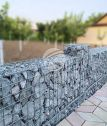

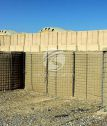
Comments
All Comments (0)